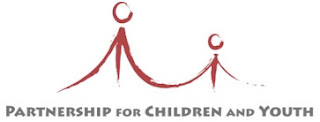 |
| Sam Piha |
The Partnership for Children and Youth (PCY) has provided important leadership in California and across the country to support the growth of the expanded learning movement.
As we begin the new year, we asked Jennifer Peck, Executive Director of PCY, to help us look ahead.

 |
| Jennifer Pec |
Q: In looking ahead to 2016, what do you see as the important emerging trends in expanded learning programs?
A: 2016 is going to be a year of even greater opportunity for the expanded learning field in California, given continuing implementation of education, finance, and accountability reform, and the great strides the expanded learning field has made in two critical and related areas: Prioritizing the importance of program quality; and demonstrating to our K-12 partners the real value of our programs in educating young people for successful futures.
We have new Quality Standards in California which everyone will play a role in implementing from the state to the site level. We are also implementing a new law which places much greater focus on quality improvement, and there are systems of support all around the state that are responding to the need for training and support for programs in the interest of meeting the Quality Standards. These are critical steps because we know quality matters to student outcomes, and these tools and policy advances support the work of practitioners in this field who are deeply committed to improving the lives of young people.
The focus on quality also helps us demonstrate to our school day partners in the K-12 world that expanded learning programs are a necessary and critical component to the task of providing equitable and effective educational opportunities to all young people. With our ability to demonstrate quality and impact, we are better able to firmly assert that without high quality expanded learning opportunities, the education system will never meet its goals of all students achieving success in school, higher education, and career.
In 2016, we will capitalize on the great strides we have made in building relationships with our partners in the K-12 world such as school administrators, school board members, teachers and other leaders at the state and local levels by demonstrating how our programs keep students engaged, support Common Core skills, support Social and Emotional Learning skills, and much more.
Q: Looking ahead to 2016, what do you see as the most significant challenge facing the field of expanded learning?
A: Our biggest challenge by far is grappling with the financing crisis our state funded programs are facing. The state set a daily per child, per day rate of $7.50 back in 2006, and despite enormous cost of living increases and more recent increases in the state minimum wage, that daily rate remains stagnant and programs are suffering. While program providers do everything they can to stay afloat and maintain services for students, they can only stretch so far.
In 2015, many programs reported the need to eliminate some professional development, eliminate some enrichment services, and eliminate full time site coordinators. In 2016, we may begin to see some programs have to shut their doors.
In response, last winter our advocacy community came together and rapidly put together a bill and a budget request for our state legislature which was very successful – the legislature recommended a $25 million increase to ASES. However, the Governor was not convinced this was a priority and did not include this in his final budget.
We are now gearing up for an even bigger effort in 2016 to secure additional resources for ASES so our programs can survive and thrive into the future. This Campaign to preserve California’s investment and leadership in expanded learning needs to be a priority for everyone who cares about this work – see the Campaign’s brand new website to learn how to get involved at www.saveafterschool.com.
------------------
Jennifer Peck was a founding staff member of the Partnership in 2001 and became its Executive Director in 2003. Through her leadership, the Partnership has developed and implemented initiatives to finance and build after-school and summer-learning programs, and increase access to school meals and nutrition education programs in the Bay Area’s lowest-income communities. Jennifer leads a coalition of California organizations advocating for new federal policies to improve the effectiveness of after-school and summer-learning programs. To learn more about the Partnership and sign up for their e-newsletter, visit their website.




No comments:
Post a Comment